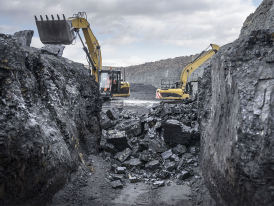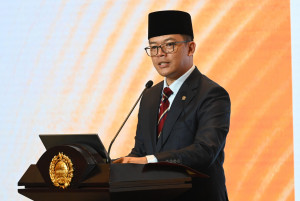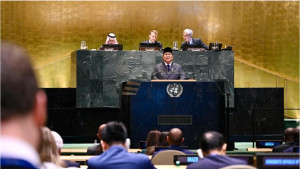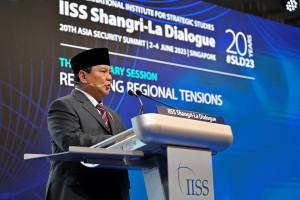Indonesia needs to strengthen energy transition policy for self-sufficiency: Experts
Indonesia’s dependency on fossil energy that is decline in production will threaten the energy self-sufficiency target that the government needs to determine a policy and regulation that encourage investment in renewable energy, experts have suggested.
Putra Adhiguna, Managing Director of Energy Shift Institute, said that energy transition is crucial in meeting the 8-percent economic growth target set by President Prabowo Subianto, considering that energy is the foundation of any economic sectors, while global companies are demanding the availability of clean energy in destination countries of their investment.
“Energy transition is an issue of Indonesia’s competitiveness at global level, an issue on competitiveness to attract qualified industrial investment and creating jobs. It is the government that will have to calculate the economic gain and loss if we do not have clean energy supply,” Putra said on Monday, October 28, 2024.
He noted the urgency of thorough planning in energy sector to encourage development as well as avoiding long-term burden.
“The government needs to encourage precise long-term electricity procurement plan that serves as a benchmark for investors. The government also needs to give clarity for regulations, including laws on renewable energy,” he cited.
“Based on our experience, a ministerial regulation is not enough, while presidential regulations cannot be implemented. So we need clarity in renewable energy law,” he added.
Anissa Suharsono, Energy Policy Analyst at International Institute for Sustainable Development, said transition to cleaner energy needs fundamental change in Indonesia’s energy policy that can be achieved through strong political will.
She suggested that energy transision can not be realized without the government’s action to tackle all obstacles to the development of renewable energy, such as provision on local contents (TKDN), renewable energy tariff, and fossil fuel energy that harm renewable energy.
“A stable investment climate can be established if the government has clear and legal binding road map such as identified in the document of Comprehensive Investment and Policy Plan - Just Energy Transition Partnership (CIPP - JETP),” Anissa said.
Agung Budiono, Executive Director of Indonesia CERAH Foundation, said that Indonesia will not achieve energy self-sufficiency if it continues to rely on fossil energy, i.e. fossil fuel. Following the decline in reserves and production, it is estimated that fuel import will increase if Indonesia does not immediately convert to renewable energy.
“Therefore, acceleration of energy transition is urgent and the government needs to issue supporting policy and regulations. It should be reminded that until now, Indonesia has no law on energy transition. Actually, a legal umbrella is important to synchronize its derivative regulations that will attract investors in renewable energy to invest in Indonesia,” he said.
Based on the 2023 data of the Ministry of Energy and Mineral Resources, Indonesia imported 132.39 million barrels of fuel. Indonesia also imported refined oil up to 26.89 million kiloliters and LPG 6.95 million tons. In fact, in the same year, Indonesia also imported coal although in small volumes of 14.46 million tons.
On the other hand, Indonesia's renewable energy development is still slow. By 2023, the national renewable energy mix had only reached 13.1 perccent, far from the 25 percent target by 2025. However, instead of developing a strategy to boost renewable energy, the government plans to reduce the mix target to 17-19 perccent by 2025.
Tag
Already have an account? Sign In
-
Start reading
Freemium
-
Monthly Subscription
20% OFF$29.75
$37.19/MonthCancel anytime
This offer is open to all new subscribers!
Subscribe now -
Yearly Subscription
33% OFF$228.13
$340.5/YearCancel anytime
This offer is open to all new subscribers!
Subscribe now







